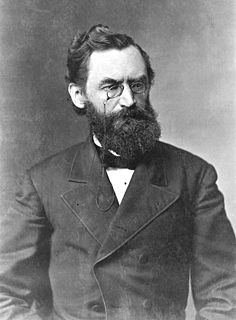A Quote by Voltaire
It is dangerous to be right in matters on which the established authorities are wrong.
Quote Topics
Related Quotes
There's nothing "wrong" with anything. "Wrong" is a relative term, indicating the opposite of that which you call "right." Yet, what is "right"? Can you be truly objective in these matters? Or are "right" and "wrong" simply descriptions overlaid on events and circumstances by you, out of your decision about them?
It ought to be the first endeavour of a writer to distinguish nature from custom; or that which is established because it is right, from that which is right only because it is established; that he may neither violate essential principles by a desire of novelty, nor debar himself from the attainment of beauties within his view, by a needless fear of breaking rules which no literary dictator had authority to enact.
If you look at things as they are, there does not seem to be a code either of man or of God on which one can pattern one's conduct. Wrong triumphs over right as much as right over wrong. Sometimes its triumphs are greater. What happens ultimately, you do not know. In such circumstances what can you do but cultivate an utter indifference to all values? Nothing matters. Nothing whatever.
I confidently trust that the American people will prove themselves ... too wise not to detect the false pride or the dangerous ambitions or the selfish schemes which so often hide themselves under that deceptive cry of mock patriotism: "Our country, right or wrong!" They will not fail to recognize that our dignity, our free institutions and the peace and welfare of this and coming generations of Americans will be secure only as we cling to the watchword of true patriotism: "Our country - when right to be kept right; when wrong to be put right."
It is a governing principle of nature, that the agency which can produce most good, when perverted from its proper aim, is most productive of evil. It behooves the well-intentioned, therefore, vigorously to watch the tendency of even their most highly prized institutions, since that which was established in the interests of the right, may so easily become the agent of the wrong.




































